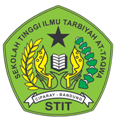Islamic Education from a Tarbawy Perspective: Facing the Challenges of Globalization
DOI:
https://doi.org/10.61166/classroom.v2i1.24Keywords:
Islamic Education, Tarbawy, Globalization, Character, Tawhid-Based CurriculumAbstract
Islamic education from a tarbawy perspective has a strategic role in shaping the character of individuals who have faith, morals and intellectual skills in the era of globalization. Globalization has had a significant impact on various aspects of life, including education. The rapid flow of information, cultural changes and technological developments require the Islamic education system to adapt without losing its fundamental values. This research discusses how tarbawy-based Islamic education is able to face the challenges of globalization with a holistic and integrative approach. Islamic education not only focuses on cognitive, but also spiritual, emotional and social aspects, resulting in individuals who not only excel in science, but also have strong morals. The concept of Islamic tarbiyah emphasizes character formation, understanding knowledge based on revelation and reason, as well as adapting to changing times without abandoning Islamic principles. Some of the main challenges facing Islamic education in the era of globalization include the secularization of education, the influence of Western culture which is not in line with Islamic values, and technological developments which can have a negative impact if not addressed wisely. To meet this challenge, educational strategies based on Islamic values are needed, such as the integration of religious knowledge and science, the use of technology for da'wah and learning, and strengthening the role of Islamic teachers and educational institutions as agents of change. This research also highlights the importance of a monotheism-based curriculum that is able to form a kaffah (comprehensive) Muslim personality, as well as a learning model that develops students' spiritual, intellectual and social intelligence. Thus, Islamic education from a tarbawy perspective can be a solution in facing the challenges of globalization while maintaining Islamic identity in the midst of modernization.
References
Al-Attas, S. M. N. (1980). The Concept of Education in Islam: A Framework for an Islamic Philosophy of Education. Kuala Lumpur: ISTAC.
Al-Faruqi, I. R. (1982). Islamization of Knowledge: General Principles and Work Plan. Washington D.C.: IIIT.
Arifin, Z. (2011). Filsafat Pendidikan Islam. Jakarta: Bumi Aksara.
Azra, A. (2003). Pendidikan Islam: Tradisi dan Modernisasi di Tengah Tantangan Milenium III. Jakarta: Logos.
Hasan, L. (2015). Pengaruh Globalisasi terhadap Pendidikan Islam. Bandung: Mizan.
Hidayat, A. (2017). Pendidikan Islam dalam Arus Modernisasi. Yogyakarta: UII Press.
Jalaluddin, R. (2016). Metode Pendidikan Islam. Jakarta: RajaGrafindo Persada.
Madjid, N. (1997). Islam, Kemodernan, dan Keindonesiaan. Jakarta: Paramadina.
Muhaimin. (2010). Pengembangan Kurikulum Pendidikan Islam: Implementasi dan Inovasi. Jakarta: RajaGrafindo Persada.
Nasution, H. (2001). Islam Rasional: Gagasan dan Pemikiran. Bandung: Mizan.
Rahim, H. (2005). Pendidikan Islam: Transformasi Pemikiran dan Aktualisasi. Jakarta: PT RajaGrafindo Persada.
Ramayulis, Y. (2018). Ilmu Pendidikan Islam. Jakarta: Kalam Mulia.
Sarif, M. (2019). Islamic Education in the Era of Globalization. Kuala Lumpur: IIUM Press.
Siregar, S. (2012). Tantangan Pendidikan Islam di Era Digital. Bandung: Pustaka Setia.
Syed, M. N. (1994). Islamic Education and the Muslim Worldview. Kuala Lumpur: ISTAC.
Tilaar, H. A. R. (2000). Pendidikan dalam Arus Perubahan Sosial. Jakarta: Grasindo.
Yusuf, A. M. (2011). Strategi Pendidikan Islam di Era Globalisasi. Malang: UMM Press.
Zuhdi, M. (2019). Pendidikan Islam di Era Revolusi Industri 4.0. Yogyakarta: UII Press.
Zubaedi. (2011). Desain Pendidikan Karakter. Jakarta: Kencana.
Zuhairini, Z. (1983). Filsafat Pendidikan Islam. Jakarta: Bumi Aksara.
Downloads
Published
How to Cite
Issue
Section
License
Copyright (c) 2025 Ateng Sanusi, Iskandar Mirza

This work is licensed under a Creative Commons Attribution 4.0 International License.













